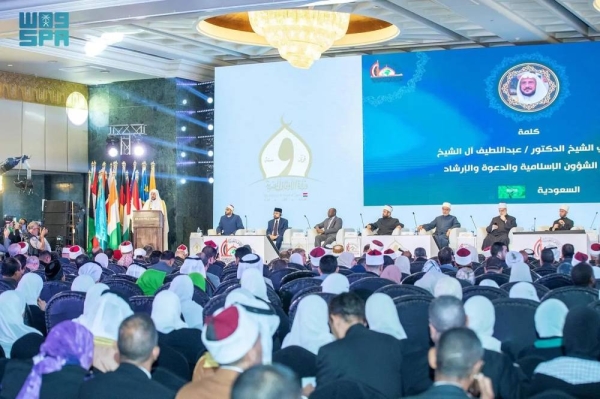Saudi Arabia has made significant strides in the realm of women’s rights under the leadership of King Salman and with the support of Crown Prince Mohammed bin Salman. Minister of Islamic Affairs, Call, and Guidance Sheikh Dr. Abdullatif Al-Sheikh highlighted these advancements at the 35th International Conference of the Supreme Council for Islamic Affairs in Cairo. He noted that Saudi women have excelled in various sectors such as education, healthcare, finance, employment, and leadership. Women have taken on ministerial positions, ambassador roles, and high-ranking positions within the consultative Shoura Council.
Saudi women have made remarkable achievements on a global scale, with examples such as a Saudi woman serving as director general of the Centre for Excellence in Nano-medicine and Engineering at the University of California. The Ministry of Islamic Affairs has actively empowered women by appointing them to leadership positions and involving them in religious guidance and education initiatives. Minister Al-Sheikh commended the efforts of Saudi women in the fields of business, education, health, technology, and even space exploration. He expressed hope that the conference would result in recommendations to further enhance the role of Muslim women in building strong families, promoting Islamic values, and contributing to a prosperous and peaceful society.
The progress made by Saudi women in various sectors mirrors the country’s commitment to advancing gender equality and women’s rights. With the leadership of King Salman and Crown Prince Mohammed bin Salman, Saudi women have been able to break barriers and achieve remarkable success. The Kingdom has recognized the importance of empowering women and enabling them to contribute actively to the development of society. By appointing women to leadership roles and facilitating their participation in critical sectors, Saudi Arabia has shown its dedication to promoting gender equality and inclusivity.
The achievements of Saudi women in education, healthcare, finance, employment, and leadership roles are a testament to their capabilities and potential. The example of a Saudi woman leading a prestigious institution in the United States demonstrates the global reach and impact of Saudi women in various fields. The Ministry of Islamic Affairs’ efforts to empower women in religious guidance and education further exemplify the country’s commitment to promoting women’s participation in all aspects of society. By recognizing and celebrating the achievements of Saudi women, the Kingdom is setting an example for other nations to follow in promoting gender equality and inclusivity.
The conference held in Cairo focused on the role of women in building awareness and emphasized the importance of Muslim women in promoting strong families and contributing to a prosperous society. The discussions and recommendations made at the conference aimed to further empower and support Muslim women in their journey towards equality and success. By highlighting the achievements of Saudi women and showcasing their contributions to various sectors, the conference aimed to inspire and encourage women across the Muslim world to pursue their goals and ambitions. The recognition of women’s achievements and contributions is essential in fostering a culture of inclusivity and equality within Muslim societies.
In conclusion, Saudi Arabia’s progress in advancing women’s rights and empowering women in various sectors is a testament to the country’s commitment to gender equality and inclusivity. The leadership of King Salman and Crown Prince Mohammed bin Salman has played a significant role in creating opportunities for women to succeed and thrive in different fields. The achievements of Saudi women in education, healthcare, finance, employment, and leadership positions underscore their potential and capabilities. The Ministry of Islamic Affairs’ efforts to empower women in religious guidance and education further demonstrate the country’s dedication to promoting women’s participation in all aspects of society. Moving forward, it is essential for Muslim societies to continue working towards gender equality and inclusivity, recognizing and celebrating the contributions of women in building strong families, promoting Islamic values, and contributing to a prosperous and peaceful society.











